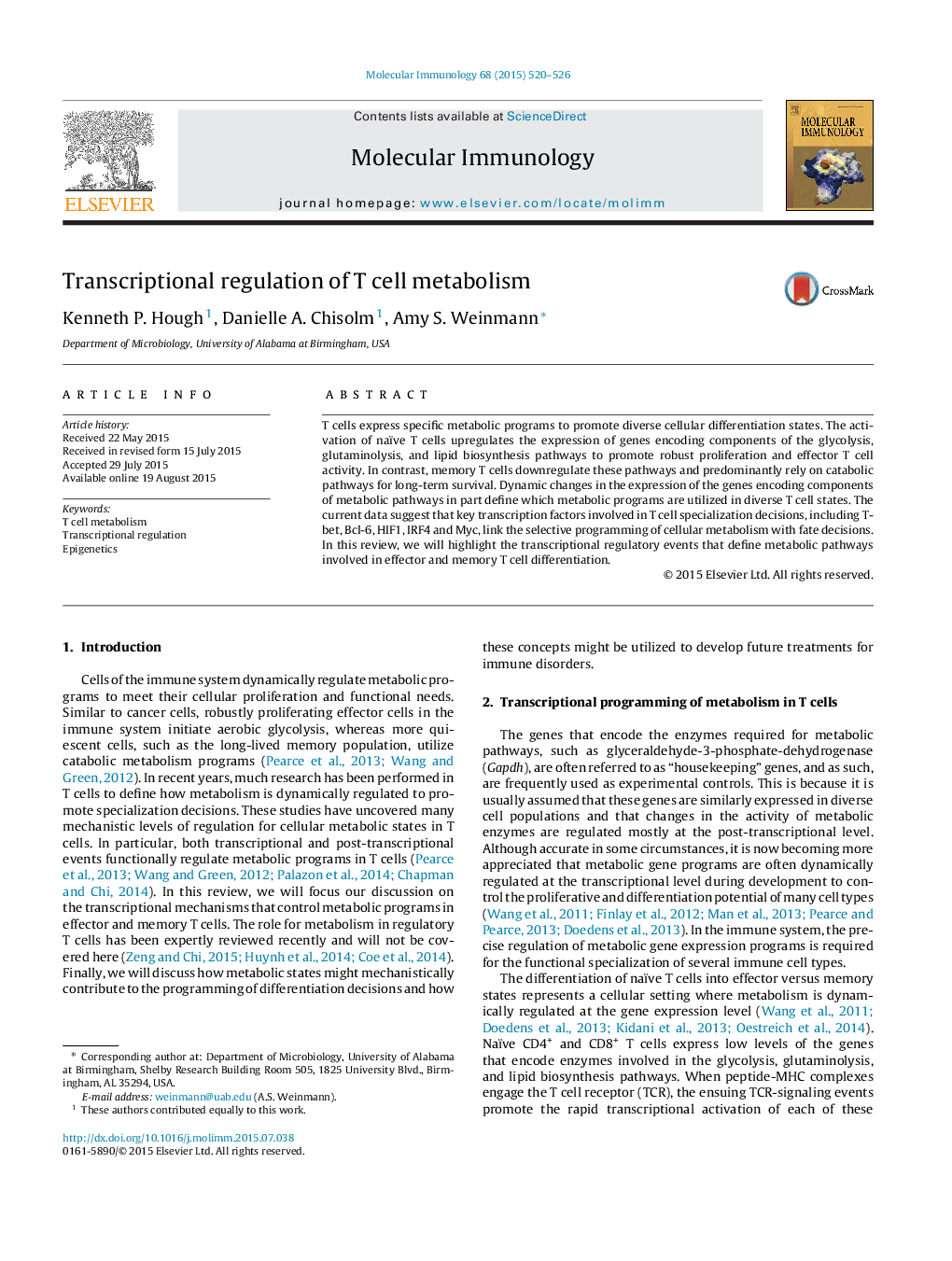| Article ID | Journal | Published Year | Pages | File Type |
|---|---|---|---|---|
| 2830668 | Molecular Immunology | 2015 | 7 Pages |
•Transcriptional programming of metabolism in effector and memory T cells.•Key transcription factors that regulate metabolic programs in T cells.•Comparing widespread changes in metabolic gene programs in T cells and cancer cells.•Possible role for metabolites in epigenetic programs.
T cells express specific metabolic programs to promote diverse cellular differentiation states. The activation of naïve T cells upregulates the expression of genes encoding components of the glycolysis, glutaminolysis, and lipid biosynthesis pathways to promote robust proliferation and effector T cell activity. In contrast, memory T cells downregulate these pathways and predominantly rely on catabolic pathways for long-term survival. Dynamic changes in the expression of the genes encoding components of metabolic pathways in part define which metabolic programs are utilized in diverse T cell states. The current data suggest that key transcription factors involved in T cell specialization decisions, including T-bet, Bcl-6, HIF1, IRF4 and Myc, link the selective programming of cellular metabolism with fate decisions. In this review, we will highlight the transcriptional regulatory events that define metabolic pathways involved in effector and memory T cell differentiation.
